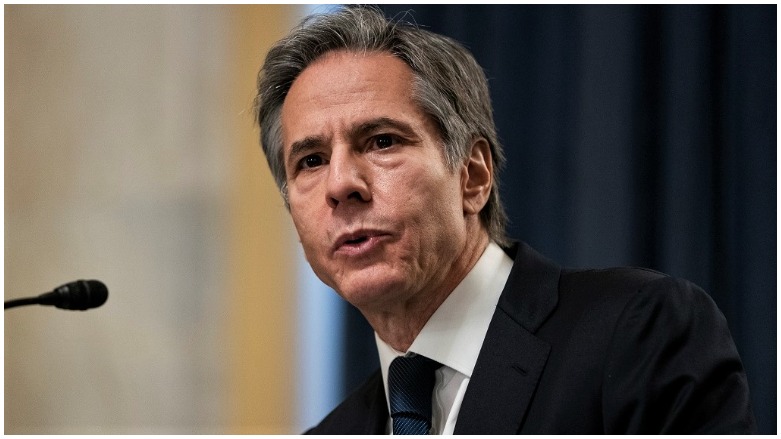US mobilizes big coalition to confront Taliban, as visit of US Defense Secretary to Riyadh postponed indefinitely
“The nature of a Taliban-led government’s relationship with us, with the international community, will depend entirely on its actions in the weeks and months” ahead, US Secretary of State Antony Blinken stated.

WASHINGTON DC (Kurdistan 24) – On Wednesday, US Secretary of State Antony Blinken and German Foreign Minister Heiko Maas co-hosted a virtual conference of the foreign ministers of 22 states, plus representatives of the European Union, NATO, and the United Nations to discuss the situation in Afghanistan.
The US, along with Germany, sought to present the Taliban with a united front to oblige the new government in Kabul to meet basic standards of governance domestically and of behavior in the international arena.
Pakistan, the Taliban’s main supporter, participated in the meeting, although two key states—Russia and China—did not.
The meeting reflected the Biden administration’s preferred approach to international relations: through diplomacy, including the creation of large coalitions, while eschewing the use of military force.
Blinken was in Germany, as he returned to the US from Qatar, where he, along with US Secretary of Defense Lloyd Austin, had met with officials there on Afghan-related issues, including the massive evacuation that the US had recently concluded.
Qatar, where the US maintains a large airbase, had served as a key transit point.
Austin continued on to Bahrain and Kuwait. He was scheduled to visit Saudi Arabia as well, but that visit was postponed indefinitely, due to what the Pentagon called a scheduling conflict.
The cancellation of Austin’s stop in Riyadh may reflect growing Saudi unhappiness with Washington. On August 24, the Saudi Deputy Defense Minister, Khalid bin Salman, announced that he had signed a military cooperation agreement with Russia’s Deputy Defense Minister “aimed at developing joint military cooperation between the two countries.”
US Criteria for Dealing with Taliban
In a press conference following the foreign ministers’ meeting, Blinken affirmed that future US dealings with the Taliban “will be for advancing the [US] national interest” and “the interests of our partners.”
“The nature of a Taliban-led government’s relationship with us, with the international community, will depend entirely on its actions in the weeks and months” ahead, Blinken added.
The Taliban, Blinken said, had pledged to permit evacuation flights out of Afghanistan. However, there were several charter flights that were supposed to leave the northern Afghan city of Mazar-e-Sharif, and the Taliban had blocked them on spurious grounds.
“We’ve heard in some of our engagements with the Taliban” of “their concern about a so-called brain drain and people with knowledge and expertise leaving the country,” Blinken said.
One way to deal with that issue, of course, would be to provide assurances to those who fear for their future under a Taliban government. But the Taliban have done no such thing. Indeed, the new government, which they announced on Tuesday, is quite hard-line, including, even, individuals whom the US and the UN have designated as terrorists.
Read More: Taliban name hardline interim government
In his press conference, Blinken laid out the criteria by which the US, and the international community more broadly, would deal with Afghanistan’s new rulers.
“The Taliban seek international legitimacy and support,” Blinken said, but “any legitimacy, any support, will have to be earned”—a point that all participants in the ministerial conference had agreed upon.
Blinken then listed the four commitments that the Taliban had made and which they had to honor: 1) “to let people travel freely;” 2) “to respect their basic rights, including women and minorities;” 3) “to ensure that Afghanistan is not used as a launching pad for terrorist attacks”; and 4) “not to carry out reprisal violence against those who choose to stay in Afghanistan.”
Blinken also affirmed that the US would “continue to provide humanitarian assistance to the Afghan people, as “the toll of conflict, drought, [and] COVID-19 have hit the people of Afghanistan very hard and left millions displaced.”